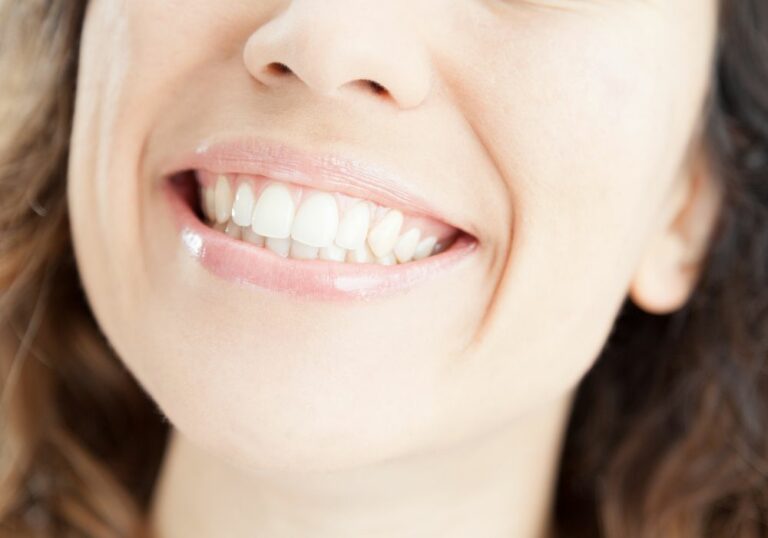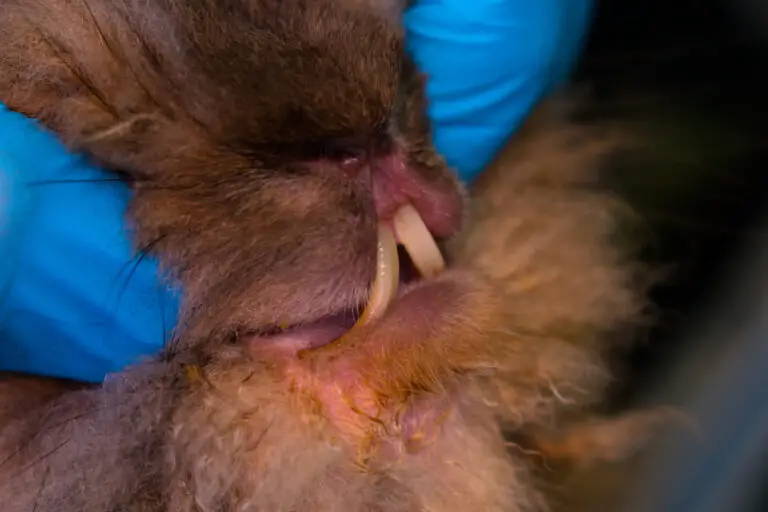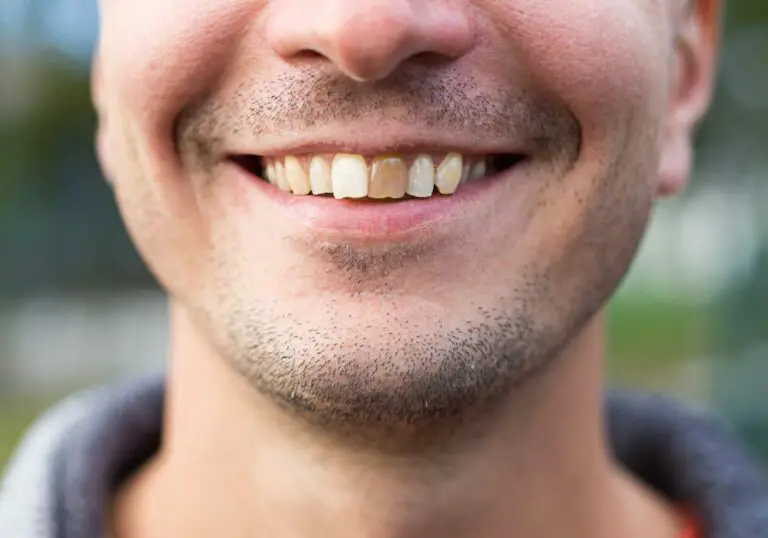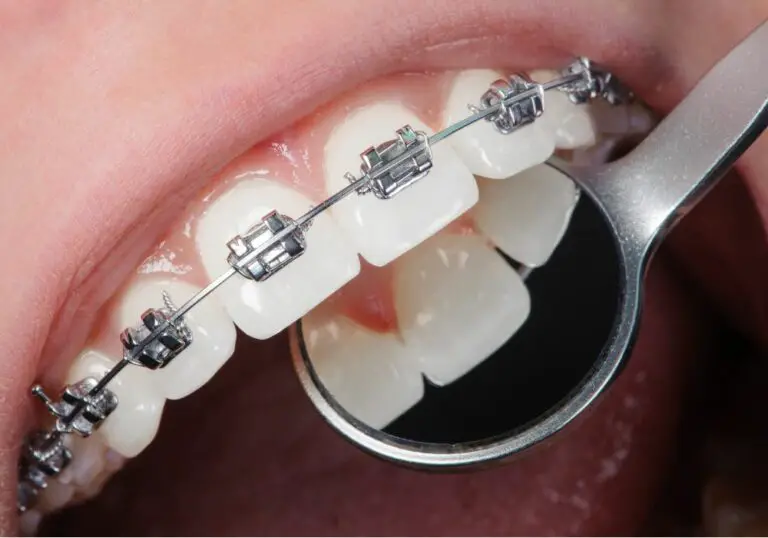Tooth erosion is a common dental problem that occurs when the enamel on your teeth wears away due to exposure to acid. Acidic foods and drinks, frequent vomiting, and acid reflux are some of the common causes of tooth erosion. If left untreated, tooth erosion can lead to a range of dental problems, including cavities, sensitivity, and discoloration.
The severity of tooth erosion depends on the extent of enamel loss and the underlying cause. In some cases, tooth erosion may be mild and not cause any significant problems. However, if the erosion is severe, it can lead to tooth decay and even tooth loss. It is important to understand the causes, symptoms, and treatment options for tooth erosion to prevent it from becoming a serious problem.
If you are experiencing tooth sensitivity, discoloration, or other dental problems, it is important to consult a dentist. A dental professional can examine your teeth and provide a diagnosis and treatment plan for tooth erosion. With proper care and treatment, you can prevent further damage to your teeth and maintain good oral health.
Understanding Tooth Erosion
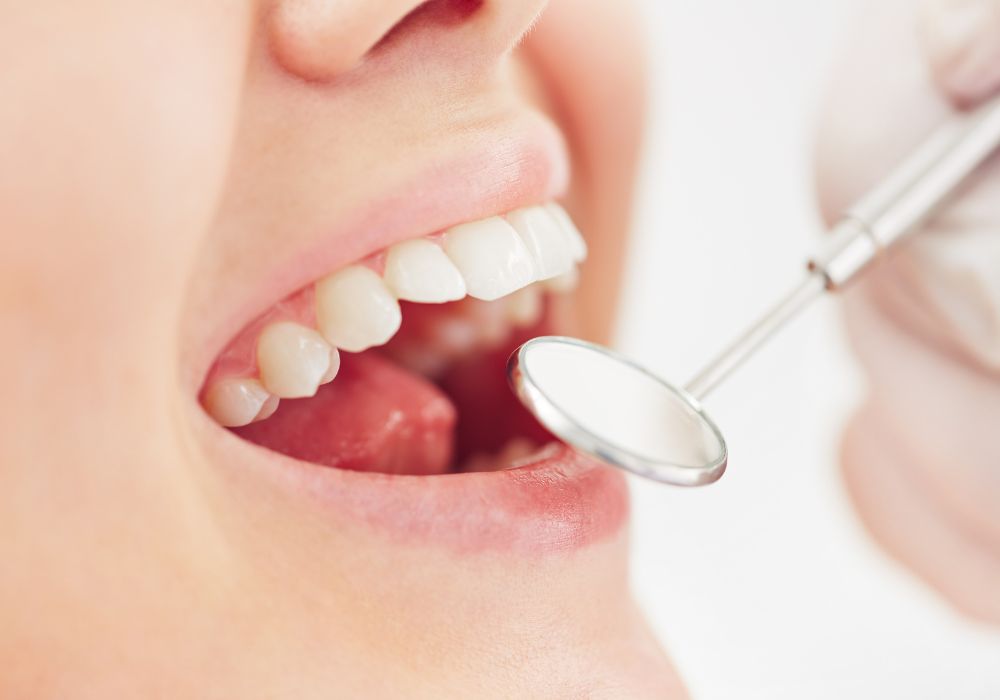
Tooth erosion is a dental condition that occurs when the tooth enamel gradually wears away due to acid exposure. The enamel is the hard, protective layer of the tooth that shields it from damage. When the enamel erodes, the underlying dentin layer becomes exposed, making the tooth more vulnerable to decay and sensitivity.
There are two types of tooth erosion: intrinsic and extrinsic. Intrinsic erosion is caused by stomach acid, which can be due to acid reflux or excessive vomiting. Extrinsic erosion, on the other hand, is caused by external factors such as diet, lifestyle, and oral hygiene.
Some of the common causes of extrinsic tooth erosion include consuming acidic foods and drinks, such as citrus fruits, soda, and sports drinks. Brushing your teeth too hard or using a hard-bristled toothbrush can also contribute to tooth erosion.
Symptoms of tooth erosion may include sensitivity to hot and cold temperatures, discoloration, transparency, roughness, and cracking. If you experience any of these symptoms, it is important to see a dentist as soon as possible to prevent further damage to your teeth.
Preventing tooth erosion involves adopting good oral hygiene practices, such as brushing your teeth twice a day with a soft-bristled toothbrush and using fluoride toothpaste. You should also avoid consuming acidic foods and drinks and rinse your mouth with water after eating or drinking them.
In conclusion, tooth erosion is a serious dental condition that can lead to tooth decay, sensitivity, and other complications. By understanding its causes and symptoms and adopting good oral hygiene practices, you can prevent tooth erosion and maintain healthy teeth and gums.
Causes of Tooth Erosion
Tooth erosion is a common dental problem that can lead to sensitivity, discoloration, and even tooth loss. The following are some of the most common causes of tooth erosion:
Dietary Factors
Acidic foods and drinks can cause tooth erosion by dissolving the protective enamel layer on your teeth. Beverages with high acid content include all carbonated beverages and citrus-based drinks (orange juice, grapefruit juice). Other acidic foods and drinks include:
- Wine
- Beer
- Fruit juice
- Pickles
- Tomatoes
- Vinegar
If you consume these foods and drinks frequently or in large quantities, you may be at risk for tooth erosion.
Medical Conditions
Certain medical conditions can also increase your risk of tooth erosion. For example, people who suffer from acid reflux or gastroesophageal reflux disease (GERD) may experience tooth erosion due to stomach acid entering the mouth. Other medical conditions that can cause tooth erosion include:
- Bulimia
- Alcoholism
- Dry mouth
- Medications that reduce saliva production
If you have any of these medical conditions, it is important to talk to your dentist about how to prevent tooth erosion.
In conclusion, tooth erosion can be caused by a variety of factors, including acidic foods and drinks, medical conditions, and medications. By understanding the causes of tooth erosion, you can take steps to prevent it and protect your dental health.
Symptoms of Tooth Erosion
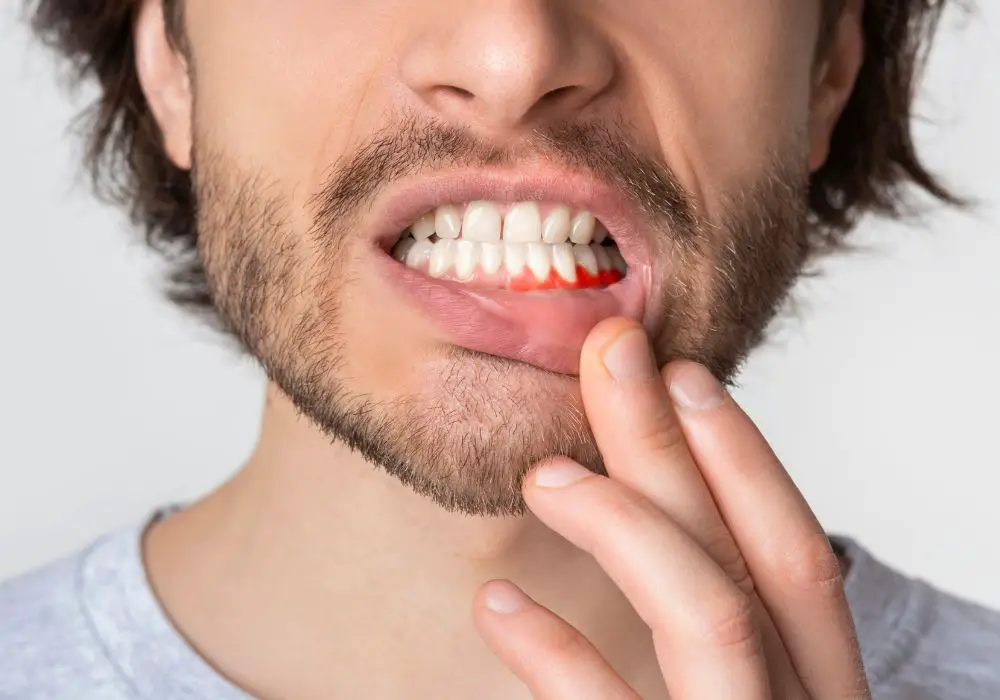
Tooth erosion is a condition that can cause various symptoms. Here are some of the most common symptoms of tooth erosion:
- Sensitivity: One of the most common symptoms of tooth erosion is sensitivity. You may experience sensitivity to hot and cold foods and drinks, as well as sweet and sour foods.
- Discoloration: As the enamel wears away, the teeth may become discolored. They may appear yellow or brown, and the edges of the teeth may look transparent.
- Cracks and Chips: As the enamel erodes, the teeth become weaker and more susceptible to chips and cracks. You may notice small chips or cracks in the teeth, or the teeth may feel rough to the touch.
- Cupping: Tooth erosion can cause small indentations or cups to form on the surface of the teeth. These cups can be seen on the chewing surfaces of the molars.
- Rounded Teeth: Over time, tooth erosion can cause the edges of the teeth to become rounded. This can make the teeth look shorter and less defined.
If you experience any of these symptoms, it is important to see a dentist. Your dentist can evaluate your teeth and recommend a treatment plan to help prevent further damage and restore your smile.
Complications from Tooth Erosion
Tooth erosion can lead to several complications that can affect your oral health. Here are some of the complications that you may experience if you have tooth erosion:
- Increased tooth sensitivity: As the enamel on your teeth wears away, it can expose the sensitive dentin layer underneath. This can result in increased tooth sensitivity, especially to hot, cold, or sweet foods and drinks.
- Discoloration and staining: Tooth erosion can cause your teeth to become discolored and stained. This is because the enamel protects your teeth from stains, and when it wears away, your teeth become more susceptible to discoloration.
- Rough or uneven edges on your teeth: As the enamel on your teeth wears away, your teeth may become rough or uneven. This can make it difficult to chew food properly and can also affect your appearance.
- Shiny spots on your teeth: Tooth erosion can cause your teeth to develop shiny spots, especially on the biting surfaces of your molars. This is a sign that your enamel is wearing away.
- Increased risk of tooth decay: When your enamel wears away, your teeth become more susceptible to tooth decay. This is because the enamel helps protect your teeth from the bacteria that cause cavities.
- Cracked or chipped teeth: Tooth erosion can weaken your teeth, making them more susceptible to cracking or chipping.
If you experience any of these complications, it’s important to see your dentist as soon as possible. Your dentist can recommend treatments to help address these issues and prevent further damage to your teeth.
Prevention of Tooth Erosion
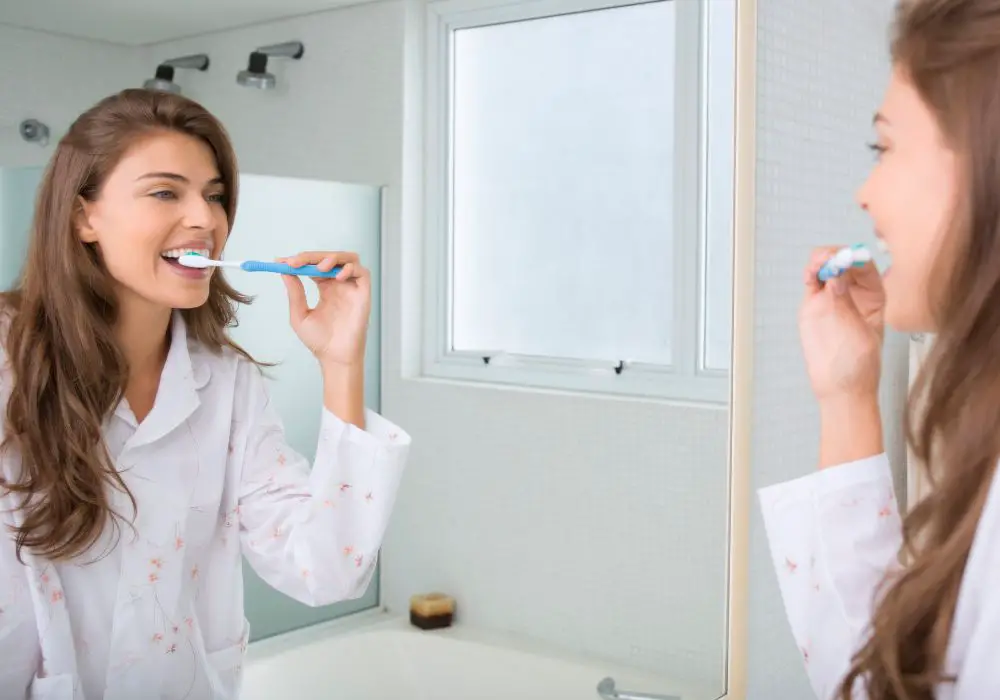
Tooth erosion can be prevented by taking certain measures that help to protect the enamel from acid attacks. Here are some tips that can help you prevent tooth erosion:
Oral Hygiene Practices
Good oral hygiene practices are essential for preventing tooth erosion. Brushing your teeth twice a day with fluoride toothpaste helps to remove plaque and strengthen the enamel. It is also important to floss daily to remove food particles that get stuck between your teeth.
Using a mouthwash that contains fluoride can also help to strengthen the enamel and protect your teeth from acid attacks. However, it is important not to use mouthwash immediately after consuming acidic foods or drinks, as this can actually increase the risk of tooth erosion.
Dietary Modifications
Making certain dietary modifications can also help to prevent tooth erosion. Here are some tips to keep in mind:
- Limit your intake of acidic foods and drinks, such as citrus fruits, tomatoes, and soft drinks.
- Drink plenty of water to help rinse away acid and food particles from your teeth.
- Use a straw when drinking acidic beverages to minimize contact with your teeth.
- Avoid snacking throughout the day, as this increases the amount of time that your teeth are exposed to acid.
In addition to these tips, it is also important to visit your dentist regularly for checkups and cleanings. Your dentist can help to identify early signs of tooth erosion and provide recommendations for preventing further damage. By taking these steps, you can help to protect your teeth and maintain good oral health.
Treatment Options for Tooth Erosion
If you have tooth erosion, your dentist will recommend treatment options based on the severity of the erosion. Treatment options for tooth erosion include dental procedures and home remedies.
Dental Procedures
Dental procedures are recommended for severe tooth erosion cases. These procedures can help restore the tooth enamel and prevent further erosion. Some of the common dental procedures for tooth erosion are:
- Dental bonding: Dental bonding involves applying a tooth-colored resin material to the damaged tooth. The resin is then hardened with a special light, and the tooth is polished to give it a natural appearance.
- Dental crowns: Dental crowns are recommended for severe cases of tooth erosion. A dental crown is a cap that is placed over the damaged tooth to protect it from further damage.
- Dental veneers: Dental veneers are thin shells that are placed over the front surface of the teeth. They are used to cover up the damage caused by tooth erosion and improve the appearance of the teeth.
- Dental implants: Dental implants are recommended for cases where the tooth has been completely eroded. A dental implant is a titanium post that is surgically inserted into the jawbone. A dental crown is then attached to the post to replace the missing tooth.
Home Remedies
Home remedies are recommended for mild cases of tooth erosion. These remedies can help prevent further erosion and improve the overall health of your teeth. Some of the common home remedies for tooth erosion are:
- Limit acidic foods and drinks: Limit your intake of acidic foods and drinks, such as citrus fruits, carbonated beverages, and wine. These foods and drinks can erode the tooth enamel and cause further damage.
- Drink plenty of water: Drinking plenty of water can help neutralize the acid in your mouth and prevent tooth erosion.
- Use fluoride toothpaste: Fluoride toothpaste can help strengthen the tooth enamel and prevent further erosion.
- Chew sugar-free gum: Chewing sugar-free gum can help stimulate the production of saliva, which can help neutralize the acid in your mouth and prevent tooth erosion.
In conclusion, tooth erosion can be a serious dental problem if left untreated. It is important to seek treatment as soon as possible to prevent further damage to your teeth. Your dentist will recommend treatment options based on the severity of the erosion. Dental procedures are recommended for severe cases, while home remedies are recommended for mild cases.
Frequently Asked Questions
What are the early signs of tooth erosion?
Early signs of tooth erosion can include sensitivity to hot and cold temperatures, rough or uneven edges on teeth, discoloration, and small cracks or chips in the teeth. If you notice any of these signs, it’s important to talk to your dentist as soon as possible.
How can I prevent tooth erosion?
To prevent tooth erosion, it’s important to practice good oral hygiene habits, such as brushing your teeth twice a day with a fluoride toothpaste and flossing daily. You should also avoid consuming acidic foods and drinks, such as citrus fruits and soda, and rinse your mouth with water after consuming them. Additionally, using a straw when drinking acidic beverages can help reduce the amount of acid that comes into contact with your teeth.
What are some natural remedies for tooth erosion?
Some natural remedies for tooth erosion include chewing sugar-free gum, which can help increase saliva production and neutralize acid in the mouth. Drinking green tea can also help protect tooth enamel, as it contains antioxidants that can help prevent erosion. Additionally, eating crunchy fruits and vegetables, such as apples and carrots, can help remove plaque and bacteria from the teeth.
What are the treatment options for tooth erosion?
Treatment options for tooth erosion depend on the severity of the erosion. In mild cases, your dentist may recommend using fluoride treatments or dental sealants to help protect the teeth. In more severe cases, your dentist may recommend dental bonding or crowns to restore the damaged teeth. In some cases, tooth extraction may be necessary if the erosion is too severe.
Can tooth erosion lead to tooth loss?
In severe cases, tooth erosion can lead to tooth loss. This is why it’s important to talk to your dentist if you notice any signs of tooth erosion, as early intervention can help prevent further damage to the teeth.
Is it possible to reverse tooth erosion?
In some cases, it may be possible to reverse tooth erosion by using fluoride treatments or dental bonding to restore the damaged enamel. However, it’s important to talk to your dentist as soon as possible if you notice any signs of tooth erosion, as early intervention is key to preventing further damage to the teeth.

